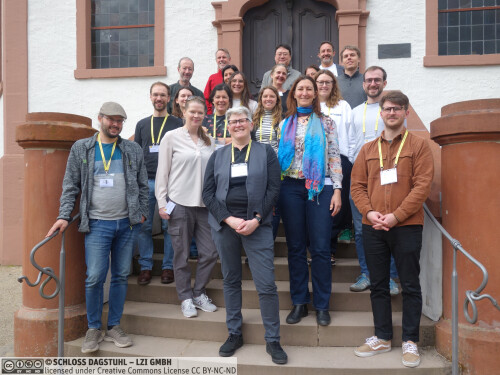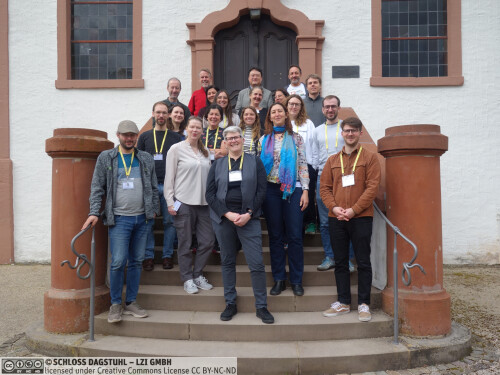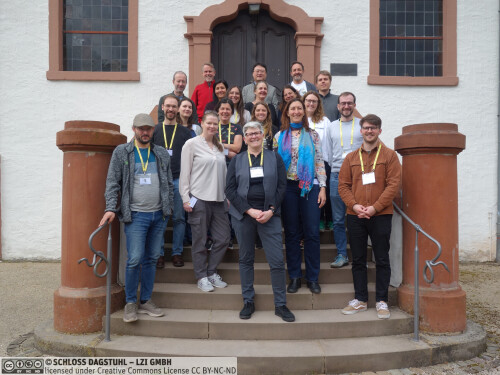Dagstuhl-Seminar 25142
Explainability in Focus: Advancing Evaluation through Reusable Experiment Design
( 30. Mar – 02. Apr, 2025 )
Permalink
Organisatoren
- Ruth Mary Josephine Byrne (Trinity College Dublin, IE)
- Elizabeth M. Daly (IBM Research - Dublin, IE)
- Simone Stumpf (University of Glasgow, GB)
- Stefano Teso (University of Trento, IT)
Kontakt
- Michael Gerke (für wissenschaftliche Fragen)
- Jutka Gasiorowski (für administrative Fragen)
Dagstuhl Reports
As part of the mandatory documentation, participants are asked to submit their talk abstracts, working group results, etc. for publication in our series Dagstuhl Reports via the Dagstuhl Reports Submission System.
- Upload (Use personal credentials as created in DOOR to log in)
Dagstuhl Seminar Wiki
- Dagstuhl Seminar Wiki (Use personal credentials as created in DOOR to log in)
Gemeinsame Dokumente
- Dagstuhl Materials Page (Use personal credentials as created in DOOR to log in)
Explainability in artificial intelligence (AI) is paramount for ensuring the responsible and ethical deployment of these technologies across various domains. It plays a crucial role in establishing trust between AI systems and humans, particularly in applications that directly impact individuals’ lives, such as healthcare, finance, and criminal justice. The ability to provide clear, comprehensible explanations of AI-driven decisions helps demystify these complex systems, allowing users to understand the rationale behind outcomes. This transparency promotes accountability, enabling users to verify that AI systems are making decisions based on valid and unbiased data, ultimately reinforcing trust and confidence in the technology.
Yet, a crucial aspect that tends to be overlooked is the insight that explanations can be leveraged for different objectives and when evaluating the utility of these methods the objective needs to be taken into account. Explanations can enhance transparency, help users form a cognitive model of a trained ML system, aid in debugging, or assist users in determining whether to place trust in a prediction or recommendation. While many explanatory mechanisms have been proposed in the community, comparing these solutions remains challenging without more standardized evaluation strategies. Compounding this issue is the versatile nature of explanations, meaning algorithm designers in reality should tailor their evaluation strategies to specific tasks.
The objective of this workshop is to bring together researchers, practitioners, and experts in the field of explainable AI to collaboratively develop reusable experiment designs. Evaluating explainability methods is something that has not been standardized by the community, meaning each author must develop and justify their own approaches. This reduces the abilities of researchers to publish their findings, which can also hinder progress in this space.
To address this, we aim to identify the different objectives and tasks for explainability methods and use this Dagstuhl Seminar to bring together researchers from the field to create a repository of adaptable tasks and experiments that will be made available to the community as open-source resources. By fostering discussions, sharing insights, and creating practical frameworks, this seminar aims to accelerate progress in the field of explainability, ensuring that evaluation practices are robust, consistent, and applicable across a wide range of contexts and applications.
Our goal is to fill this gap in the community, lowering the barrier for entry for AI researchers to properly evaluate their contributions with sound evaluation strategies grounded in cognitive science.
 Ruth Mary Josephine Byrne, Elizabeth M. Daly, Simone Stumpf, and Stefano Teso
Ruth Mary Josephine Byrne, Elizabeth M. Daly, Simone Stumpf, and Stefano Teso
Please log in to DOOR to see more details.
- Elisabeth André
- Jaesik Choi
- Peter Clark
- Elizabeth M. Daly
- Peter Flach
- Jasmina Gajcin
- Tobias Huber
- Eda Ismail-Tsaous
- Patricia Kahr
- Francesca Naretto
- Talya Porat
- Daniele Quercia
- Lindsay Sanneman
- Ute Schmid
- Kacper Sokol
- Timo Speith
- Wolfgang Stammer
- Simone Stumpf
- Stefano Teso
- Nava Tintarev
Klassifikation
- Artificial Intelligence
- Human-Computer Interaction
- Machine Learning
Schlagworte
- Explainability
- Mental Models
- interactive machine learning
- Experiment Design
- Human-centered AI





 Creative Commons BY 4.0
Creative Commons BY 4.0
